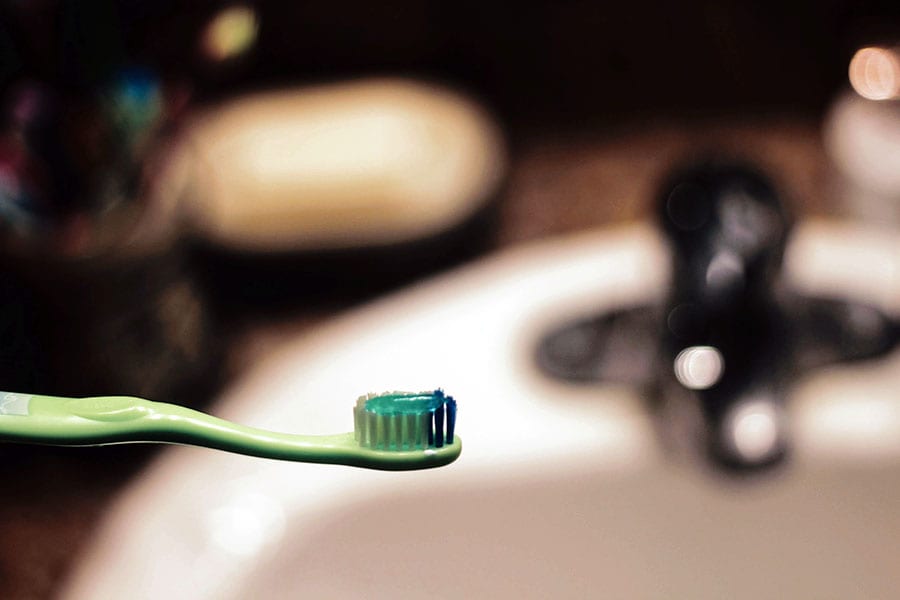A major part of caring for oneself is proper oral hygiene. For many elderly individuals, maintaining good oral health can become increasingly difficult. Usually, a number of factors contribute to this difficulty. This article will look at the overall issues many seniors face when dealing with their dental hygiene.
Why Oral Health Declines with Age
As you age, it can become harder to perform dental hygiene tasks with the proper dexterity. While many people may consider brushing their teeth an easy task, it can be a challenge for some seniors to grip a toothbrush, much less floss. Increased forgetfulness can also be a contributing factor, as common tasks can be overlooked. Additionally, the senses dull with age, so an elderly individual may not be as aware of their bad breath.
Common Dental Problems for Elderly Individuals
Teeth are usually covered with hard enamel. As plaque builds up, this enamel can decay. Many foods can also contribute to this decay. Cavities can form when tooth decay creates holes in teeth. Gum disease forms when plaque buildup affects the gums. This can lead to inflammation, bleeding, and eventual tooth loss. Tooth loss becomes more common with age, which is why many elderly individuals get oral caps and even dentures.
Improving Oral Hygiene
Advise your elderly loved one to brush their teeth at least twice a day with fluoride toothpaste. Soft to medium bristles are recommended for the elderly, as they are less irritating for elderly gums. Generally, toothbrushes should be replaced every 3-4 months, to prevent bacterial growth in the bristles.
Flossing can remove food particles in between teeth, but this can be difficult for the elderly to accomplish. Fluoride mouthwashes or gels can also improve their dental hygiene. If they suffer from dry mouth, they should consider using saliva substitute products or a more specialized mouthwash. Your loved one should also visit the dentist at least every 6 months for check-ups.
Oral Hygiene Aids for the Elderly
Technological improvements to oral care can be helpful in aiding your loved one. Electronic toothbrushes can improve brushing effectiveness without requiring as much physical effort. Water flossers can replace traditional flossing and can be easier for elderly individuals who struggle to grip floss string. Many toothbrushes are made with grips to help the elderly hold them easier.
Denture Care
Even with dentures, oral hygiene can be important. Dentures can last a long time if they are properly cared for. Dentures need to fit well and comfortably. They should be brushed daily with a non-abrasive denture care product. Dentures should soak overnight in a denture-cleaning solution. After removing dentures each night, the tongue, palate, and gums should be brushed with a soft toothbrush.
Diet and Oral Hygiene
Your loved one’s diet can impact their dental health. Sweet and sugary foods deteriorate teeth. Caffeinated beverages and alcohol should be avoided, as they can worsen dental health. Smoking can also deteriorate and yellow teeth.
Helping Your Loved One Brush Their Teeth
If your loved one needs assistance to brush their teeth, you may need to help them. Gently brush your loved one’s teeth with gentle, circular motions to clean while limiting gum irritation. Carefully brush each tooth and the area where teeth meet gums. Lightly brush the tongue.
Daily Home Care with SafeHarbor Healthcare
Most families are not able to be there to ensure that their elderly loved one is properly caring for their teeth every day. A home health aide that is there to care for your elderly loved one can assist them in a variety of ways, including maintaining oral health if they are unable to do so themselves.
Safe Harbor Healthcare Services does not provide medical or healthcare advice via articles. This material has been prepared for informational purposes only, and is not intended to provide, and should not be relied on for medical advice.
Safe Harbor Healthcare Services has been providing excellent home care on Staten Island since 1967. Our services help the elderly and disabled live safely and independently; while giving their families the peace of mind they need. For more information, contact Safe Harbor by clicking here, or call us at (718)-979-6900.

